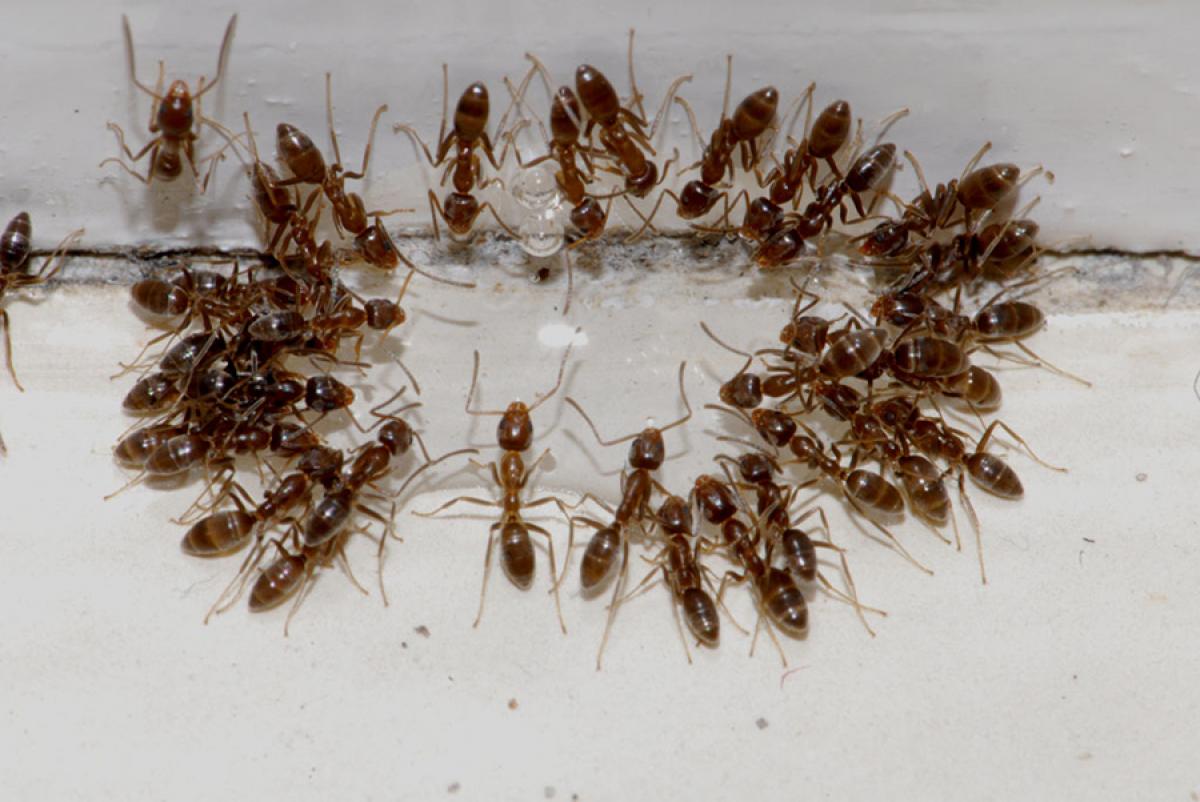Live
- All you need to know about PAN 2.0
- Akasa Air redefines travel experience with industry-first offerings
- MP: Residents stage protests against liquor shop in Indore
- Telugu Actor Shri Tej Booked for Alleged Cheating and False Promise of Marriage in Live-in Relationship
- Toyota Kirloskar Motor Celebrates 1 Lakh Urban Cruiser Hyryder on Indian Road
- MLS: New York City FC part ways with head coach Nick Cushing
- Delhi CM says Centre cutting AAP voters’ names from rolls, BJP hits back
- Hyderabad Metro Rail Phase-II Works to Begin in Old City in January 2025
- Odisha: 668 persons killed in human-elephant conflicts in last three years
- DEFENDER JOURNEYS: TO EMBARK ON ITS THIRD EDITION FROM NOVEMBER 2024
Just In

The human resource function (HR) in every corporate must learn a bit of entomology (about insects) especially the behavior of the tiny ants.
The human resource function (HR) in every corporate must learn a bit of entomology (about insects) especially the behavior of the tiny ants. Research studies have proved that all ants from the same colony exhibit similar behavior. Laziness, fighting tendency, hardworking habits etc., were some of the behaviors of ants in different colonies were studied by the entomologists.
All ants from some colonies were typically lazy or when the laziness was noted, it was present in all most all members of the ants in the same colony at the same time. Similarly, the fighting trait or hardworking trait was also when noticed in one ant in a colony was seen across other members of the same colony as well.
Why all ants from the same colony behave in a similar way?
This stereotyped behavior can be seen among employees working in the some corporate as well. Despite their profile, hierarchy or rank, all the employees carry some indicator behavior that is specific to a corporate. By indexing the indicator behavior, easily the employees can be grouped based on the corporate they work and their ‘colleague’ status can be established based on the above trait.
Only with some ‘similarity’, the employees identify themselves to be the members of the same flock. Dissimilarity is often condemned in most corporate and the employees who exhibit dissimilarity are isolated or thrown out from the corporate.
The ants from the same colony carry a specific pheromone and through the specific pheromone, ants re-establish their colony identity. The interesting question is that what way the corporate people are different from ants? Instead of ‘pheromone’, they carry some ‘behavioral similarity/style’ to maintain their corporate identity. Such identity cult is purely created by the HR culture of the organization.
Mostly, in single man owned corporate, the employees exhibit such stereotyped pattern of laziness or level of inefficiency or praising the entrepreneur tendency (sycophancy) etc. Survival in such corporate demand and compel the employees to be like ‘Roman in Rome’.
In a corporate where everyone when praising the boss or the owner of the corporate loudly and lavishly, no employee in such organization can afford stay away from the crowd or can refrain from praising the ultimate boss. If one is away from the crowd means, he or she can be easily hunted by the predators like the fate of an isolated / solitary animal in the jungle.
This is the reason why differentiated thinking or idea generations are not happing in most corporate. The HR function needs to understand this subtle aspect of people management. They should search for dissimilarity and people who do not carry the ‘indicator’ behavior of the corporate. To know about the indicator behavior, the HR must source their wisdom from entomology and ant behavior.
Some corporate even practice wearing of uniform at least one day a week to make the people connect with each other as they are from the same colony. At a subconscious level, are they not trying to make the people be like ‘ants of the same colony’? When people become like ‘ants of the same colony’ how they can be different either at the thinking, reasoning, articulating or working level. The corporate leaders must introspect and find an answer.
Dr S Ranganathan, ClinRise Derma Pvt., Ltd., Chennai
Learn more the following management books
- Jungle wisdom from corporate management – lessons from the university of nature – by Swami Sukhabodhananda and Dr S Ranganathan
- Nature – The Entrepreneur - by Dr S Ranganathan

© 2024 Hyderabad Media House Limited/The Hans India. All rights reserved. Powered by hocalwire.com







